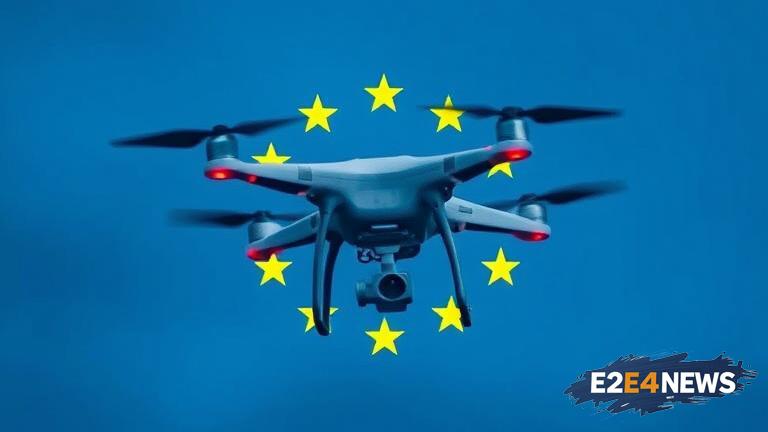The recent incidents involving drones crashing in Estonia have prompted a Member of the European Parliament (MEP) to urge the European Union (EU) to take immediate action to address the growing concerns over regional security. The MEP emphasized the need for the EU to enhance its defense measures and to work closely with its member states to prevent such incidents in the future. The drone crashes in Estonia have raised questions about the country’s ability to defend itself against potential threats, and the MEP’s call to action is seen as a necessary step to ensure the security and stability of the region. The EU has been working to strengthen its defense capabilities, and the recent incidents in Estonia have highlighted the need for further cooperation and investment in this area. The MEP’s statement comes at a time when tensions between Russia and the West are running high, and the incidents in Estonia have been seen as a potential escalation of these tensions. The EU has been accused of being slow to respond to the growing threat posed by drones, and the MEP’s call to action is seen as a wake-up call for the bloc to take the necessary steps to protect its member states. The incidents in Estonia have also raised concerns about the potential for drones to be used in future conflicts, and the need for the EU to develop strategies to counter this threat. The MEP’s statement has been welcomed by many in the EU, who see it as a necessary step to ensure the security and stability of the region. However, others have criticized the MEP’s call to action, arguing that it is too little, too late, and that the EU should have taken action sooner to address the growing threat posed by drones. The incidents in Estonia have also sparked a debate about the need for greater cooperation between the EU and its member states on defense issues, and the need for the bloc to develop a more comprehensive strategy to address the growing threats posed by drones and other emerging technologies. The EU has been working to develop a new defense strategy, which is expected to be unveiled in the coming months, and the incidents in Estonia are likely to feature prominently in this strategy. The MEP’s call to action is seen as a key moment in the development of this strategy, and it is likely to have significant implications for the future of EU defense policy. The incidents in Estonia have also raised questions about the role of Russia in the region, and the potential for the country to use drones and other emerging technologies to destabilize the region. The EU has been accused of being too soft on Russia, and the incidents in Estonia have highlighted the need for the bloc to take a tougher stance against the country. The MEP’s statement has been seen as a call to action for the EU to take a more robust approach to defending its member states, and to work more closely with its allies to counter the growing threats posed by Russia and other adversaries. The incidents in Estonia have also sparked a debate about the need for greater investment in defense capabilities, and the need for the EU to develop a more comprehensive strategy to address the growing threats posed by drones and other emerging technologies. The EU has been working to increase its defense spending, and the incidents in Estonia are likely to accelerate this process. The MEP’s call to action is seen as a key moment in the development of EU defense policy, and it is likely to have significant implications for the future of the bloc’s defense capabilities. The incidents in Estonia have also raised questions about the potential for drones to be used in future conflicts, and the need for the EU to develop strategies to counter this threat. The MEP’s statement has been welcomed by many in the EU, who see it as a necessary step to ensure the security and stability of the region. The EU has been working to develop a new defense strategy, which is expected to be unveiled in the coming months, and the incidents in Estonia are likely to feature prominently in this strategy. The MEP’s call to action is seen as a key moment in the development of this strategy, and it is likely to have significant implications for the future of EU defense policy.
